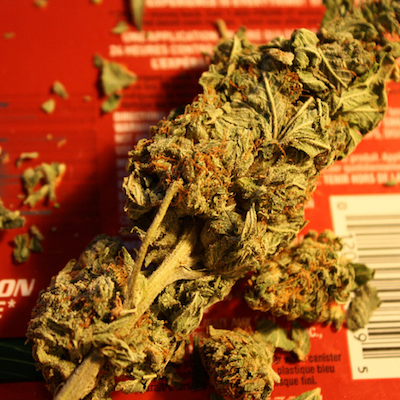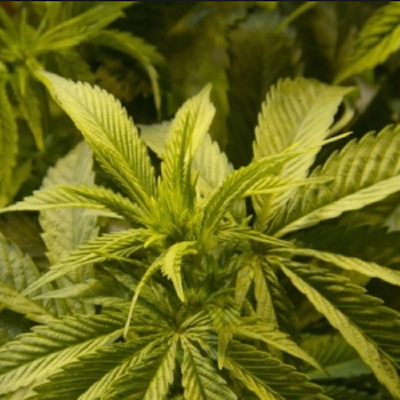Has Rhode Island Become A No Enforcement Zone For Pot?
Tuesday, December 10, 2013
Decriminalization of marijuana possession has freed up law enforcement resources in Rhode Island, according to supporters, after the same change in nearby Massachusetts in 2009 prompted the lowest rate of possession arrests in the nation.
“Anecdotally, what I've heard is, it has created some relief for law enforcement and the judiciary,” said Rhode Island Senatoe Josh Miller, speaking to the effect of decriminalization in the Ocean State this year. (A complete report is forthcoming, Miller said.)
In 2010, according to the Federal Bureau of Investigation's Uniform Crime Reporting Program, Rhode Island's per capita arrest rate for marijuana possession was 214 arrests per 100,000 people, placing it solidly in the median of the nation, and New England. Following Massachusetts' decriminalization in 2009, that state was a low outlier at 18 arrests for every 100,000 citizens.
GET THE LATEST BREAKING NEWS HERE -- SIGN UP FOR GOLOCAL FREE DAILY EBLAST'Tax and regulate'?
By creating a “tax and regulate” system, Miller said revenue could be used to better respond to alcohol and drug abuse. “Similar to alcohol and tobacco, you can control access to use better than under a criminal system,” said Miller, a co-sponsor of the state's proposed Marijuana Regulation, Control, and Taxation Act.
While fewer individuals are arrested after decriminalization, critics say the reform can be associated with other negative impacts.
“That is one of the major things we're concerned about, is the unintended consequences,” said Nancy Devaney, the head of Ocean State Prevention Alliance. “How has it changed the attitudes around marijuana?”
Varied views on marijuana reform
Two nationwide polls this year evidenced majority support for legalization: 58 percent in favor in an October Gallup poll and 52 percent according to the Pew Research Center in April.
A January 2012 survey by Public Policy Polling found 52 percent of Rhode Islanders supported the taxation and regulation of marijuana similarly to alcohol.
In a comprehensive report by the American Civil Liberties Union released this past June, relying on FBI statistics and the U.S. Census' annual county population estimates, the ACLU concluded that states spent over $3.6 billion enforcing marijuana possession laws in 2010, a combination of policing, judicial and legal, and corrections costs.
In Rhode Island, black people were 2.6 times as likely to be arrested for marijuana possession as white people according to the ACLU. And the costs of enforcing marijuana possession laws in the state were estimated at $11,851,363.
Retired New Jersey State Police Lt. Jack Cole, a co-founder of Law Enforcement Against Prohibition, says the money spent on enforcement and lost in possible tax revenue could be better spent: on education, health care, housing, or drug treatment.
“Imagine what we could do with that money,” Cole said.
But Smart Approaches to Marijuana, a group co-founded by former U.S. Rep. Patrick Kennedy, believes legalization would create more problems than it would solve, akin to those currently associated with alcohol. Responding to the Pew poll, that organization in a statement said the results were more an indication of the “careless discussion about legalization.”
In favor of decriminalization, SAM's position is that legalization creates downsides focused around health care costs, car accidents, mental illness, and addiction.
“The march to legalization ... is really changing behaviors (in youth),” said Jody Hensley, a coordinator with that organization who works with Massachusetts Prevention Alliance. “That's our concern.”
Legalization 'premature' in Rhode Island
“We've got issues around Rhode Island about medical marijuana and that law, and we've got issues around decriminalization and that law,” said Devaney, a certified prevention specialist. “Right now Rhode Island is grappling with that. ... Tax and regulate is premature.”
She said the state should wait and see the effects of legalization in Colorado and Washington, and its impacts on youth drug use and traffic accidents. Preliminary analysis from the first half of 2013 in Washington by the state toxicology laboratory demonstrated an increasing percentage of marijuana-related impaired driving cases.
Related Slideshow: New England States with Highest Marijuana Arrest Rates
Related Articles
- Newport Manners + Etiquette: Marijuana Manners
- Will Rhode Island Legalize Marijuana?
- PODCAST: The Highest Marijuana Prices in New England by State
- RI’s Own Miss Universe Olivia Culpo Advocates for Medical Marijuana
- NEW: Medical Marijuana ‘Consultancy’ Shut Down By Dept. of Health
- The Highest Marijuana Prices in New England by State
- NEW: Marijuana Arrest Rates Racially Disparate Toward Blacks
- NEW: Governor Signs Marijuana Decriminalization Bills
- RI State Report: Is It High Time to Legalize Marijuana?


















